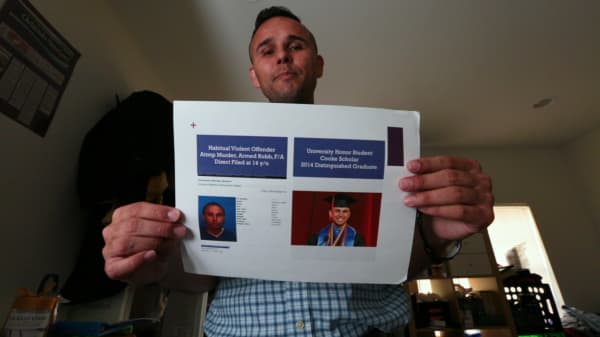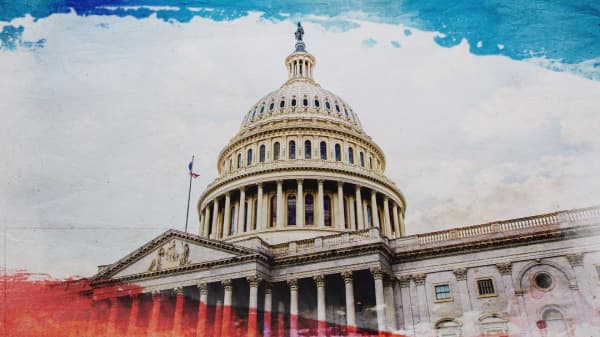Nearly twice as many respondents identified with the Democratic Party over the GOP — 41 percent to 21 percent, while 35 percent said they were unaffiliated or independents.
That gap widened significantly when they were asked about Trump's job as president: 68 percent of overall respondents said they disapprove of Trump's performance after nearly two years in office, compared with just 26 percent who do approve. It grew wider still among likely voters, with 72 percent of that group disapproving of Trump's job.
While Trump's often polarizing rhetoric makes a stark divide in approval less than surprising, the survey shows nearly the same lopsided ratings for congressional Republicans. Twenty-five percent of respondents approved of the GOP's job performance in Congress, while 68 percent disapprove. The gap among likely voters grew to 22 percent who approve and 75 percent who disapprove — a 53 percentage-point gap.
Democrats in Congress were given a more even split, though a 53 percent majority still disapprove of their performance.
Young Americans also appear to look at the two major parties as a proxy for their broader feelings about the direction in which the country is headed. Nearly three in five respondents said they are more fearful than hopeful about the future of the U.S., and a 43 percent plurality said they would have more fear if the GOP held onto its majority in the House after the midterms. In contrast, 42 percent of those polled said they would have more hope if Democrats clinched a House majority.








